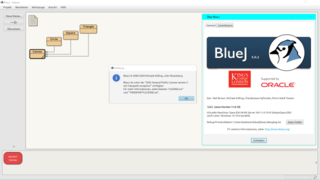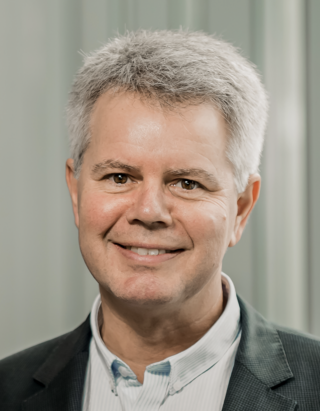The Association for Computing Machinery (ACM) is a US-based international learned society for computing. It was founded in 1947 and is the world's largest scientific and educational computing society. The ACM is a non-profit professional membership group, reporting nearly 110,000 student and professional members as of 2022. Its headquarters are in New York City.

Computer science is the study of computation, information, and automation. Computer science spans theoretical disciplines to applied disciplines. Though more often considered an academic discipline, computer science is closely related to computer programming.

PL/C is an instructional dialect of the programming language PL/I, developed at the Department of Computer Science of Cornell University in the early 1970s in an effort headed by Professor Richard W. Conway and graduate student Thomas R. Wilcox. PL/C was developed with the specific goal of being used for teaching programming. The PL/C compiler, which implemented almost all of the large PL/I language, had the unusual capability of never failing to compile a program, through the use of extensive automatic correction of many syntax errors and by converting any remaining syntax errors to output statements. This was important because, at the time, students submitted their programs on IBM punch cards and might not get their output back for several hours. Over 250 other universities adopted PL/C; as one late-1970s textbook on PL/I noted, "PL/C ... the compiler for PL/I developed at Cornell University ... is widely used in teaching programming." Similarly, a mid-late-1970s survey of programming languages said that "PL/C is a widely used dialect of PL/I."

Peter James Denning is an American computer scientist and writer. He is best known for pioneering work in virtual memory, especially for inventing the working-set model for program behavior, which addressed thrashing in operating systems and became the reference standard for all memory management policies. He is also known for his works on principles of operating systems, operational analysis of queueing network systems, design and implementation of CSNET, the ACM digital library, and codifying the great principles of computing. He has written numerous influential articles and books, including an overview of fundamental computer science principles, computational thinking, and his thoughts on innovation as a set of learnable practices.

David Gries is an American computer scientist at Cornell University, United States mainly known for his books The Science of Programming (1981) and A Logical Approach to Discrete Math.

Michael Kölling is a German computer scientist, currently working at King's College London, best known for the development of the BlueJ and Greenfoot educational development environments and as author of introductory programming textbooks. In 2013 he received the SIGCSE Award for Outstanding Contribution to Computer Science Education for the development of the BlueJ.

Mark Joseph Guzdial is a Professor in the College of Engineering at the University of Michigan. He was formerly a professor in the School of Interactive Computing at the Georgia Institute of Technology affiliated with the College of Computing and the GVU Center. He has conducted research in the fields of computer science education and the learning sciences and internationally in the field of Information Technology. From 2001–2003, he was selected to be an ACM Distinguished Lecturer, and in 2007 he was appointed Vice-Chair of the ACM Education Board Council. He was the original developer of the CoWeb, one of the earliest wiki engines, which was implemented in Squeak and has been in use at institutions of higher education since 1998. He is the inventor of the Media Computation approach to learning introductory computing, which uses contextualized computing education to attract and retain students.
Computational thinking (CT) refers to the thought processes involved in formulating problems so their solutions can be represented as computational steps and algorithms. In education, CT is a set of problem-solving methods that involve expressing problems and their solutions in ways that a computer could also execute. It involves automation of processes, but also using computing to explore, analyze, and understand processes.
Owen Astrachan is an American computer scientist and professor of the practice of computer science at Duke University, where he is also the department's director of undergraduate studies. He is known for his work in curriculum development and methods of teaching computer science. He was one of the first National Science Foundation CISE Distinguished Education Fellows, and is a recipient of the ACM Outstanding Educator Award. He was the principal investigator on the multi-year NSF/College Board project that led to the release of the AP Computer Science Principles course and exam.

Alexander Repenning is the Director of the Scalable Game Design project, a computer science professor adjunct, a founder of AgentSheets Inc., and a member of the Center for Lifelong Learning and Design at the University of Colorado in Boulder. Repenning is the inventor of drag and drop blocks programming. His research interests include computer science education, end-user programmable agents, human-computer interaction, and artificial intelligence.
Susan Beth Horwitz was an American computer scientist noted for her research on programming languages and software engineering, and in particular on program slicing and dataflow-analysis. She had several best paper and an impact paper award mentioned below under awards.

David Jay Malan is an American computer scientist and professor. Malan is a Gordon McKay Professor of Computer Science at Harvard University, and is best known for teaching the course CS50, which is the largest open-learning course at Harvard University and Yale University and the largest Massive Open Online Course (MOOC) at EdX, with lectures being viewed by over a million people on the edX platform up to 2017.

Gender disparity in computing concerns the disparity between the number of men in the field of computing in relation to the lack of women in the field. Originally, computing was seen as a female occupation. As the field evolved, so too did the demographics, and the gender gap shifted from female dominated to male dominated. The believed need for more diversity and an equal gender gap has led to public policy debates regarding gender equality. Many organizations have sought to create initiatives to bring more women into the field of computing.
Valerie Barr is an American computer scientist, and is the Margaret Hamilton Distinguished Professor of Computer Science at Bard College. She formerly held the Jean Sammet endowed chair in the department of Computer Science at Mount Holyoke College in South Hadley, Massachusetts. She is known for her work with women in computing.
Amber Settle is an American computer scientist and professor of education and theory in the department of Computer Science at DePaul University in Chicago, Illinois. She is known for her work in computer science education and her continuing service and leadership in Association for Computing Machinery (ACM) Special Interest Group on Computer Science Education (SIGCSE). She is also known for her work on computational thinking.
Daniel Zingaro is an associate professor at the University of Toronto Mississauga. His main areas of research are in evaluating Computer science education and online learning. He has co-authored over 80 articles in peer-reviewed journals and conferences; and also authored a textbook, "Invariants: a Generative Approach to Programming.
Susan Sentance is a British computer scientist, educator and director of the Raspberry Pi Foundation Computing Education Research Centre at the University of Cambridge. Her research investigates a wide range of issues computer science education, teacher education and the professional development of those teaching computing. In 2020 Sentance was awarded a Suffrage Science award for her work on computing education.
Alicia Nicki Washington is an American computer scientist, author, and professor at Duke University. She is the author of the book Unapologetically Dope. She was the first Black woman to earn a Doctor of Philosophy in Computer Science from North Carolina State University in 2005.
The International Bebras Challenge on Informatics is an annual computer science competition for primary and secondary school students around the world. With 54 member countries and more than 2.5 million participating students in 2021, the competition is the largest computer science competition in the world.

Danish computer scientist Michael Edelgaard Caspersen has spent his academic life furthering computer science education, at all levels. His research interests are computing education, programming didactics, programming methodology, and object-oriented programming. He is best known for his work on computing education research and development, particularly his work to promote informatics as a fundamental discipline for all.










